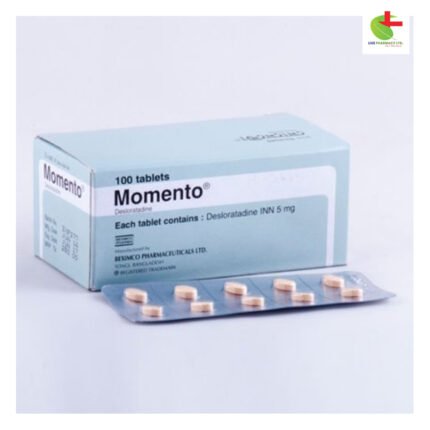Cortiflo 6
100.00৳ Strip
- Cortiflo contains Deflazacort, a powerful glucocorticoid used for treating various inflammatory and autoimmune conditions like rheumatoid arthritis, asthma, and lupus.
- It provides anti-inflammatory and immunosuppressive effects by inhibiting key enzymes and immune system chemicals.
- Cortiflo is suitable for both adults and children, offering effective management of acute and chronic disorders.
- Dosing is tailored to individual needs, ensuring optimal therapeutic outcomes.
 Brand
Brand
|
Beximco Pharmaceuticals Ltd |
|---|---|
 Generics
Generics
|
Deflazacort |
 Type
Type
|
Tablet |
Indications
Cortiflo is prescribed for:
- Anaphylaxis, asthma, and severe hypersensitivity reactions
- Rheumatoid arthritis, juvenile chronic arthritis, and polymyalgia rheumatica
- Systemic lupus erythematosus, dermatomyositis, mixed connective tissue disease (excluding systemic sclerosis), polyarteritis nodosa, sarcoidosis
- Pemphigus, bullous pemphigoid, pyoderma gangrenosum
- Minimal change nephrotic syndrome, acute interstitial nephritis
- Rheumatic carditis
- Ulcerative colitis, Crohn’s disease
- Uveitis, optic neuritis
- Autoimmune hemolytic anemia, idiopathic thrombocytopenic purpura
- Acute and lymphatic leukemia, malignant lymphoma, multiple myeloma
- Immune suppression following transplantation
Pharmacology
Deflazacort, the active component in Cortiflo, exerts its anti-inflammatory effects by inhibiting the Phospholipase A2 enzyme, which plays a key role in prostaglandin synthesis. Additionally, Deflazacort suppresses the immune system by reducing the release of specific immune system chemicals, providing immunosuppressive action.
Dosage & Administration
Adults:
- Acute Disorders: Initial doses of up to 120 mg/day may be necessary. Maintenance doses typically range from 3-18 mg/day.
- Rheumatoid Arthritis: Maintenance doses usually fall within 3-18 mg/day. The lowest effective dose should be used and adjusted as needed.
- Bronchial Asthma: For acute asthma attacks, high doses (48-72 mg/day) may be required, with gradual reduction as the condition improves. For chronic asthma, doses should be adjusted to the lowest level that controls symptoms.
- Other Conditions: Dosage is based on clinical needs, starting at a ratio of 5 mg prednisone or prednisolone to 6 mg Deflazacort and titrated to the lowest effective dose.
Children:
Children’s exposure to Deflazacort in clinical trials is limited. Glucocorticoid indications are similar to those for adults, with a strong emphasis on using the lowest effective dose. Alternate day administration may be suitable. Typical doses range from 0.25-1.5 mg/kg/day.
Guidance for Specific Conditions:
- Juvenile Chronic Arthritis: Maintenance doses are generally between 0.25-1.0 mg/kg/day.
- Nephrotic Syndrome: Initial doses of 1.5 mg/kg/day, followed by dosage adjustments based on clinical response.
- Bronchial Asthma: Initial doses range from 0.25-1.0 mg/kg, administered on alternate days.
Deflazacort Withdrawal: For patients receiving systemic corticosteroids above physiological doses (approximately 9 mg/day or equivalent) for over three weeks, tapering should be done gradually to prevent relapse.
Always follow your doctor’s advice when using this medication.
Interactions
Cortiflo is metabolized in the liver. Co-administration with liver enzyme inducers like rifampicin, rifabutin, carbamazepine, phenobarbitone, phenytoin, primidone, and aminoglutethimide may require an increased maintenance dose. Conversely, for liver enzyme inhibitors like ketoconazole, a reduced maintenance dose of Cortiflo may be appropriate.
Contraindications
Cortiflo is contraindicated in patients with known hypersensitivity to Deflazacort or its ingredients, as well as in those receiving live virus immunizations.
Side Effects
Potential side effects include gastrointestinal disturbances, musculoskeletal issues, endocrine and neuropsychiatric symptoms, ophthalmic complications, fluid and electrolyte imbalances, susceptibility to infections, impaired wound healing, hypersensitivity reactions, skin atrophy, striae, telangiectasia, acne, myocardial rupture post-myocardial infarction, and thromboembolism.
Pregnancy & Lactation
- Pregnancy: Deflazacort crosses the placenta. Prolonged or repeated use during pregnancy may increase the risk of intrauterine growth retardation. Corticosteroids should only be prescribed when the benefits outweigh the risks to the mother and fetus.
- Nursing Mothers: Corticosteroids are excreted in breast milk. While no specific data is available for Deflazacort, doses up to 50 mg/day are unlikely to cause systemic effects in the infant. Higher doses may lead to some adrenal suppression in the infant, but the benefits of breastfeeding generally outweigh the risks.
Precautions & Warnings
Cortiflo requires special caution in the following conditions, with frequent monitoring:
- Cardiac disease, congestive heart failure (except active rheumatic carditis), hypertension, and thromboembolic disorders due to the potential for salt and water retention and potassium loss.
- Gastrointestinal issues such as gastritis, esophagitis, diverticulitis, ulcerative colitis, or conditions involving a risk of perforation, abscess, or infection.
- Diabetes mellitus, osteoporosis, myasthenia gravis, renal insufficiency.
- Emotional instability, psychotic tendencies, epilepsy.
- Past corticosteroid-induced myopathy.
- Liver failure, hypothyroidism, and cirrhosis, which may increase glucocorticoid effects.
- Ocular herpes simplex due to the risk of corneal perforation.
Use in Special Populations
- Hepatic Impairment: Blood levels of Cortiflo may be elevated, necessitating careful dose adjustments.
- Renal Impairment: No special precautions are required beyond those typically associated with glucocorticoid therapy.
- Elderly: The adverse effects of systemic corticosteroids may be more significant in older adults, requiring careful management.
Therapeutic Class
Glucocorticoids
Storage Conditions
Store in a cool, dry place below 25°C, protected from light and moisture. Keep out of reach of children.













Reviews
There are no reviews yet.